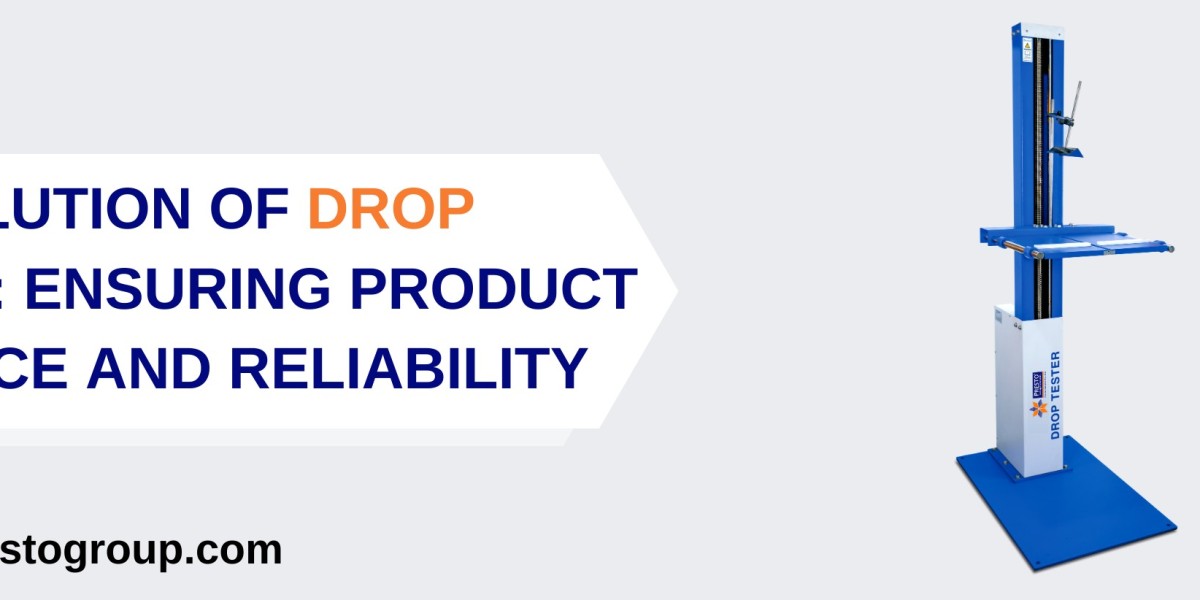Introduction of Drop Tester
In the fast-paced world of manufacturing and product development, the need for reliable and robust products has never been more critical. As consumers demand greater performance and durability, manufacturers must ensure that their products can withstand the rigors of everyday use, transportation, and handling. One crucial tool in achieving this goal is the drop tester. This article will delve into the evolution of drop testers, their significance in various industries, and how they contribute to enhancing product resilience and reliability.
The Birth of Drop Testers
The concept of drop testing dates back to the early 20th century when engineers and scientists began experimenting with methods to assess the impact resistance of products. The initial drop tests were relatively rudimentary, involving dropping products from specific heights and observing the resulting damage. As technology advanced, the need for more sophisticated and standardized testing methods became apparent.
The Rise of Modern Drop Testers
With the advent of more advanced materials and the increasing complexity of products, drop tester machine evolved into sophisticated machines capable of simulating real-world scenarios accurately. Modern drop testers utilize various mechanisms to replicate the forces experienced during drops, including pneumatic, hydraulic, and electromagnetic systems. These testers offer precise control over drop heights, angles, and drop surfaces, allowing manufacturers to tailor tests to their specific product requirements.
Industries Benefiting from Drop Testers
A wide range of industries benefit from the use of amazing testing equipment drop testers to ensure their products meet rigorous quality standards. Some of the prominent sectors that rely on drop testing include:
Consumer Electronics: Smartphones, tablets, laptops, and other electronic devices must endure accidental drops during everyday use. Drop testers help electronics manufacturers identify weak points and vulnerabilities, leading to improvements in design and materials.
Automotive: In the automotive industry, drop testing plays a vital role in assessing the durability of various components, such as airbags, sensors, and safety systems. These tests are essential to guarantee passenger safety in the event of a collision.
Packaging: For companies involved in shipping and logistics, drop testers are crucial in evaluating packaging materials' protective capabilities. They enable businesses to design packaging solutions that can withstand the challenges of distribution, reducing product damage and customer complaints.
Aerospace: The aerospace industry relies on drop testing to ensure aircraft components and avionics can endure harsh landing conditions and impact events. This testing is essential to maintain the utmost safety in air travel.
Medical Devices: In the medical field, drop testing is used to assess the resilience of various medical devices, such as prosthetics, implants, and equipment. These tests are critical in preventing potential hazards to patients and medical professionals.
International Standards for Drop Testing
To ensure consistency and comparability of results, international standards organizations have developed guidelines for drop testing procedures. Organizations like the International Electrotechnical Commission (IEC), American Society for Testing and Materials (ASTM), and the International Organization for Standardization (ISO) provide comprehensive guidelines for conducting drop test for specific industries and products.
Evaluating Impact Dynamics
A crucial aspect of drop testing is understanding the impact dynamics experienced by products during a fall. Variables such as drop height, drop surface, and impact velocity can significantly influence the damage sustained by a product. By analyzing these parameters, manufacturers gain insights into potential weak points and can implement design changes to enhance product resilience. You can get the best drop tester price by Presto stantest in India.
Real-World Simulation
One of the main advantages of modern drop testers is their ability to simulate real-world scenarios with great accuracy. Engineers can program testers to replicate specific drop patterns, mimicking potential accidents or mishandling by end-users. This capability ensures that products are thoroughly evaluated under various conditions, leading to improvements in their durability and safety. Presto is the best manufacturer in India. We make the best quality testing instruments for you.
Non-Destructive Testing
While drop testing is generally associated with destructive testing, where products are subjected to failure to assess their limits, non-destructive drop testing methods have also emerged. Non-destructive testing allows manufacturers to evaluate products without causing significant damage, making it suitable for certain applications where product reusability is crucial. You can buy Presto top asian test equipments.
Conclusion of drop tester
This the one of the best material testing machine The evolution of drop testers has been a significant milestone in the pursuit of product resilience and reliability across industries. From humble beginnings to advanced machines capable of simulating real-world conditions, drop testers play a pivotal role in product development and quality assurance. By subjecting products to controlled drop tests, manufacturers can identify weaknesses, optimize designs, and create products that can withstand the challenges of everyday use. With continued advancements in technology and standardization efforts, lab equipment drop testers will continue to be indispensable tools for ensuring the durability and safety of products in the years to come.
 " class="wow_main_float_head_img">
" class="wow_main_float_head_img">







